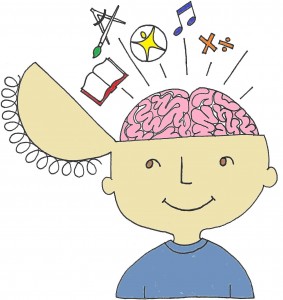Referring to this group as “mathematical geniuses” is a bit of a misnomer. Sure, they’re good at math, but more than that they’re good at logic. They “get” systems–number systems, organizational systems, even biological systems make intuitive sense to them. They easily see ways to organize and categorize things into efficient patterns. Cause and effect relationships are readily apparent to them–so much so that they can use deductive reasoning to clues and reason out what came before and what follows. Taking those skills another step, they may become skilled at pre-direction–deliberately making choices that will insure the best probability of good outcomes.
It goes without saying that they’re killer-good at puzzles. 😉
So how do you mentor a mathematician?
Give them problems to solve.
Think “science”. Biology is the study of physical systems. Mathematical equations and cause-and-effect relationships are a huge component of chemistry. And physics is basically God playing with math. Give your logic-minded student access to science materials and magazines, and make room for the growing collections of specimens that are sure to follow. (They can probably handle the organization of said collections, themselves.)
Manipulatives make math meaningful. Use LEGOs, coins, candies, dice, cards, and other household items to illustrate the logic of new ideas in math.
Is there a science museum nearby? That would make an excellent field trip, as would family outings such as nature hikes and stargazing.
And to take advantage of their pre-directive skills, why not let them read the biographies of great mathematicians, scientists, and physicians? Insight into how others have looked at the world and seen new possibilities is great inspiration!




